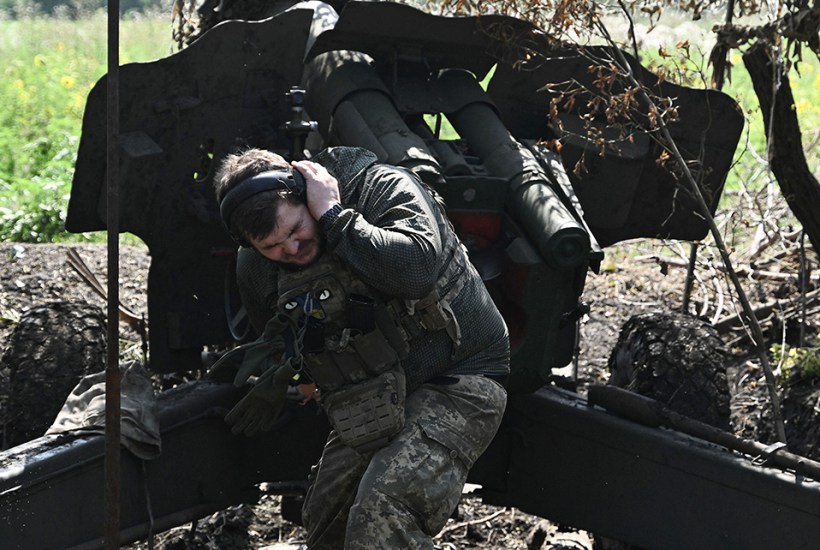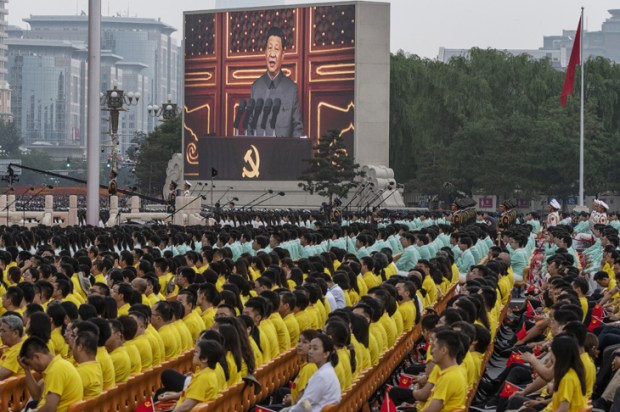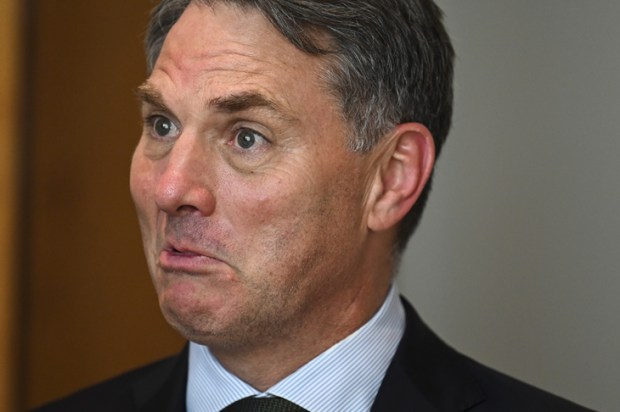The early failure of the Armed Forces of Ukraine (ZSU) to achieve a rapid breakthrough on the southern front has led many to suppose that Ukraine’s 2023 counter-offensive, which officially commenced on 4 June, is ill-fated. Though that could still turn out be the case, new developments in the past few weeks, especially in the vicinity of Robotyne, suggest the ZSU could be regaining the impetus it enjoyed at the end of last year. Total victory, including the emancipation of Crimea, might be back on the agenda.
It was a year ago that Russian pro-war military blogger Igor Girkin informed his 430,000-strong audience that Putin’s ‘special military operation’ was in peril: ‘The war in Ukraine will continue until the complete defeat of Russia.’ Girkin’s pessimism had been affected not only by Moscow’s ignominious defeat in the Battle for Kyiv back in April 2022 but Ukraine’s Kharkiv counter-offensive which resulted in the liberation of some 12,000 square kilometres of territory in the Kharkiv region.
Girkin’s gloom was not diminished one iota by what came next. Sergei Surovikin, the then-commander of the Kremlin’s military operations in Ukraine, ordered the withdrawal of Russian forces to the eastern side of the lower Dnieper River. On 11 November, 2022, the ZSU entered Kherson to be greeted by cheering crowds waving Ukrainian flags and shouting ‘Salva Ukraini!’ and ‘Glory to the ZSU!’.
However, the capture of Bakhmut by Yevgeni Prigozhin’s Wagner Group in May this year and the sluggishness of the ZSU’s 2023 counter-offensive seemed to indicate the Russo-Ukrainian War was headed towards a bloody stalemate. The formidable fortifications on the southern front – primarily in the Kherson and Zaporizhzhia regions – were initiated by Surovikin during his brief tenure as commander-in-chief (October 2022-January 2023). They held up well against Ukraine’s original strategy. A full-frontal assault involving columns of Western-supplied armoured vehicles and tanks proved ineffective against ‘Surovikin’s line’. All those Russian landmines, anti-tank dragon’s teeth, trenches, ditches and appositely positioned artillery positions wreaked havoc on the enemy. Moreover, Russia’s continued domination of the skies, at least over the battlefield, made Ukraine’s success seem even more unlikely. Ka-52 attack helicopters, in particular, were used to devasting effect against the enemy’s ground forces.
By the end of June, even US officials such as General Mark Milley were admitting that the Ukrainian counter-offensive was ‘very bloody’ and a ‘little slow’. He added, nevertheless, that the Ukrainians were ‘advancing steadily’. As confidence in an imminent breakthrough dissolved, the give-peace-a-chance option began to prevail, if not in Kyiv or the Kremlin. Comments by former French president Nicolas Sarkozy, coinciding with the publication of his political memoir a few weeks ago, captured the growing sentiment of that moment: Putin’s invasion was ‘wrong’ but ‘diplomacy, discussions and talks’ were the only way to resolve the conflict.
The possibility the Ukrainians were belatedly finding a way to crack Russia’s seemingly impenetrable defences came, ironically enough, from Russians themselves. In mid-July, Major General Ivan Popov, commander of Russia’s 58th army in the Zaporizhzhia region, found himself unilaterally dismissed by chief of staff Gerasimov for openly complaining about incompetence at the top, starting with Moscow’s failure to provide enough radars to track Ukrainian artillery on the southern front, even though Putin’s regime reputedly spends more than $500 million a day on the war.
Popov’s dissent was no random grievance. The ZSU’s reconfigured strategy involves (a) small units of infantry backed by one or two tanks or armoured vehicles penetrating Russia’s defences and (b) obliterating the enemy’s artillery positions. The relative absence of Russian counter-battery fire, in this context, might turn out to be a game-changer. Popov understood this and pointed out the problem to his superiors; Gerasimov had him sacked.
And that, it might be argued, is one of the key reasons why Putin will lose the Russo-Ukrainian War. The recently assassinated Yevgeni Prigozhin, the proscribed Sergei Surovikin and the imprisoned Igor Girkin have all behaved in the most brutal fashion. Prigozhin condoned the use of a sledgehammer to execute a defector; Surovikin was known as ‘General Apocalypse’ for his callousness towards civilians during Syria’s civil war; and Girkin was behind the 2014 downing of Malaysian Airlines flight 17. All three characters could be called monsters but, as distinct from Defence Minister Sergei Shoigu and Commander-in-Chief Valery Gerasimov, they were not incompetent monsters.
Putin’s greatest military successes came during the Donbas War, the annexation of Crimea and Syria’s civil war. Prigozhin, Surovikin and Girkin all played part in one or more of those relatively successful campaigns. The capture of Bakhmut in May this year by the Wagner group is one of the few Russian achievements this past year. But today the Wagner group has been decapitated and dispersed. Meanwhile, the ZSU is slowly but surely encircling Bakhmut; at some point the regular Russian forces that replaced Prigozhin’s troops will have to retreat or finish up killed or captured.
The same scenario is unfolding on the southern front. The key town of Robotyne has already been lost by Russia and its troops began abandoning Novoprokopivka, the next place on the road to Mariupol. After Novoprokopivka comes Tokmak, and then sixty kilometres further south lies the city of Melitopol. The best days of the first Surovikin line, like Surovikin himself, might be behind us. Interestingly, troops fleeing Novoprokopivka on foot kept to the road because the fields to their left and right were heavily mined – by their Russian comrades. This made them an easy target for Ukraine’s deadly artillery which Russia, as sacked Major General Popov pointed out, has inadequate means of countering.
The capture of Melitopol will not only make the land bridge between Russia and Crimea problematic but bring into question the security of Crimea itself. Shoigu and Gerasimov are extremely loyal to the Kremlin but have they the intellect and ability to block Ukraine’s drive to the sea? Possibly not since loyalty versus talent is the trade-off in Putin’s corrupt mobster state.
Got something to add? Join the discussion and comment below.
Get 10 issues for just $10
Subscribe to The Spectator Australia today for the next 10 magazine issues, plus full online access, for just $10.
You might disagree with half of it, but you’ll enjoy reading all of it. Try your first month for free, then just $2 a week for the remainder of your first year.














Comments
Don't miss out
Join the conversation with other Spectator Australia readers. Subscribe to leave a comment.
SUBSCRIBEAlready a subscriber? Log in